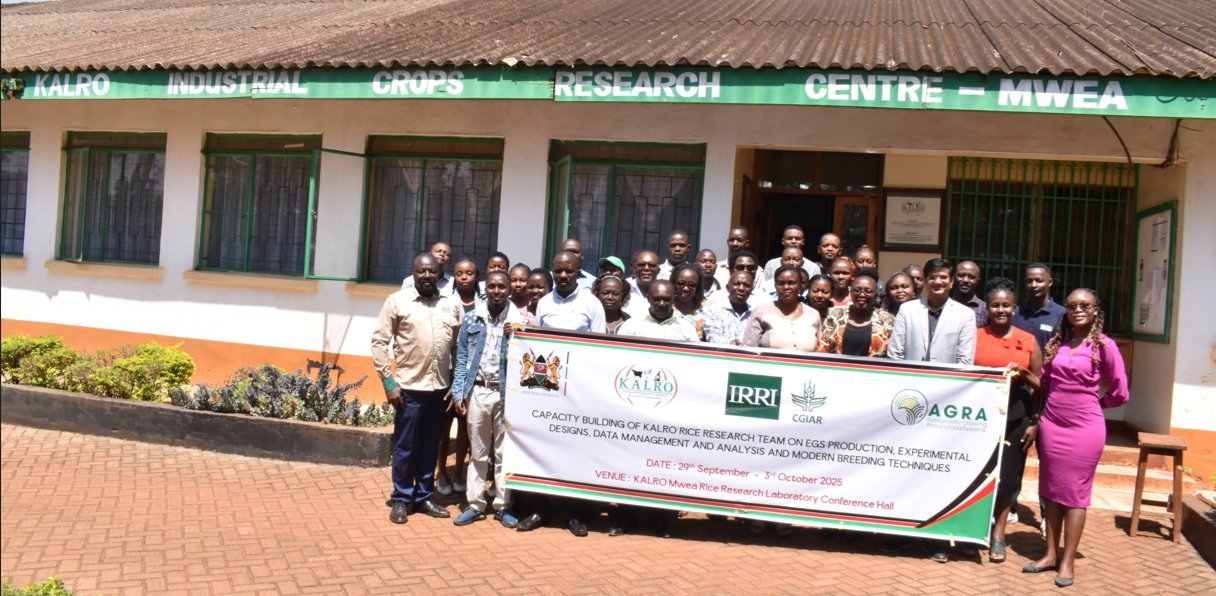KALRO, IRRI, and Partners Hold Training to Boost Kenya’s Rice Research Capacity
The Kenya Agricultural and Livestock Research Organization (KALRO), in partnership with the International Rice Research Institute (IRRI), the Consortium of International Agricultural Research Centers (CGIAR), and the Alliance for a Green Revolution in Africa (AGRA), has concluded a five-day training workshop at KALRO Mwea aimed at strengthening Kenya’s rice research capacity.
The workshop, funded by AGRA and facilitated by IRRI, brought together researchers and technical experts from KALRO, IRRI, and other partner institutions.
The training covered critical areas including early generation seed production, experimental design, data management, and modern breeding techniques.
Speaking during the workshop, Dr. Alice Murage, KALRO’s Deputy Director General for Crops, expressed gratitude to AGRA for financing the programme and to IRRI for providing technical facilitation.
She underscored the role of research in advancing Kenya’s Bottom-up Economic Transformation Agenda (BETA), particularly in efforts to reduce the country’s heavy reliance on rice imports.
“Strengthening our research capacity is vital for ensuring food and nutrition security and cutting down on costly imports. We are grateful to our partners for making this possible,” Dr. Murage said.
Dr. Ajay Panchbhai, IRRI’s Breeding and Seed Systems Lead for Africa, highlighted the importance of collaborative efforts in addressing research and development challenges within the rice sector.
“Partnerships like this are essential in bridging knowledge gaps and delivering innovations that can transform rice farming in Africa,” he noted.
On her part, Dr. Ruth Musila, Director of the KALRO Mwea Centre, emphasized the significance of capacity building in ensuring a robust rice value chain.
She said enhancing technical skills among researchers and breeders would directly contribute to improved productivity and food security in the country.
The workshop comes at a time when Kenya is seeking to increase local rice production to meet growing demand, with consumption rising faster than domestic output.
By investing in research and modern breeding techniques, stakeholders aim to make the rice sector more resilient, productive, and aligned with national development priorities.



